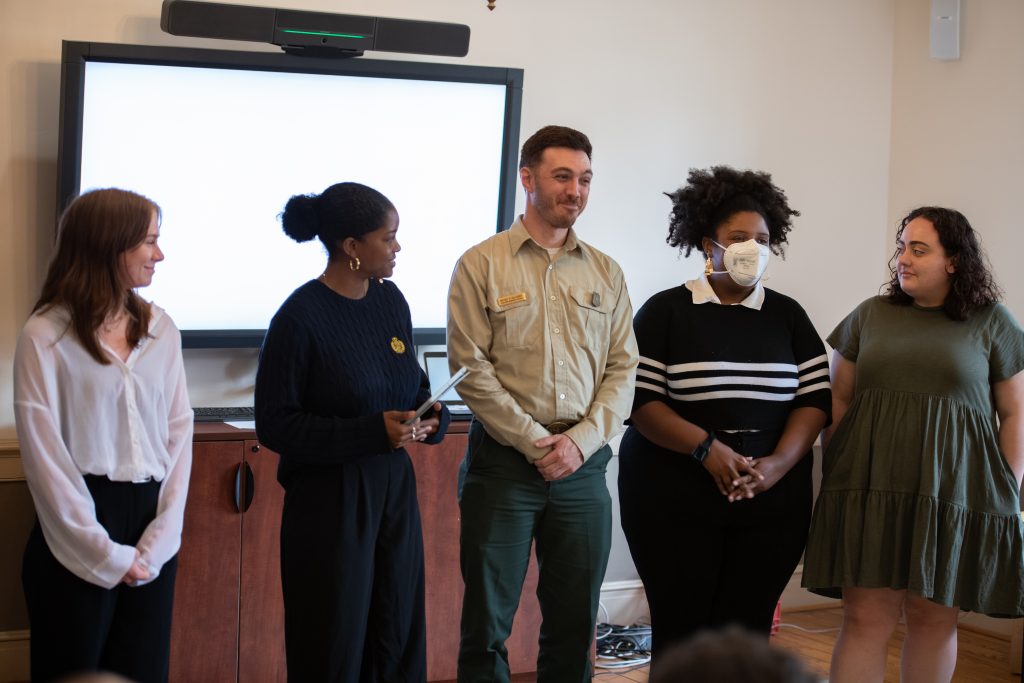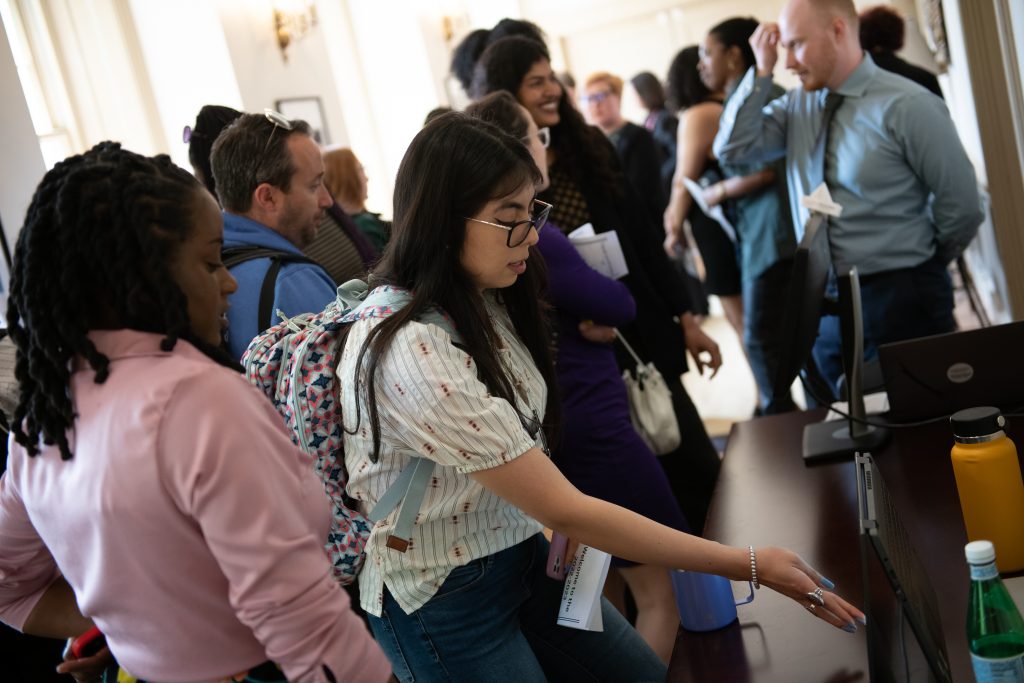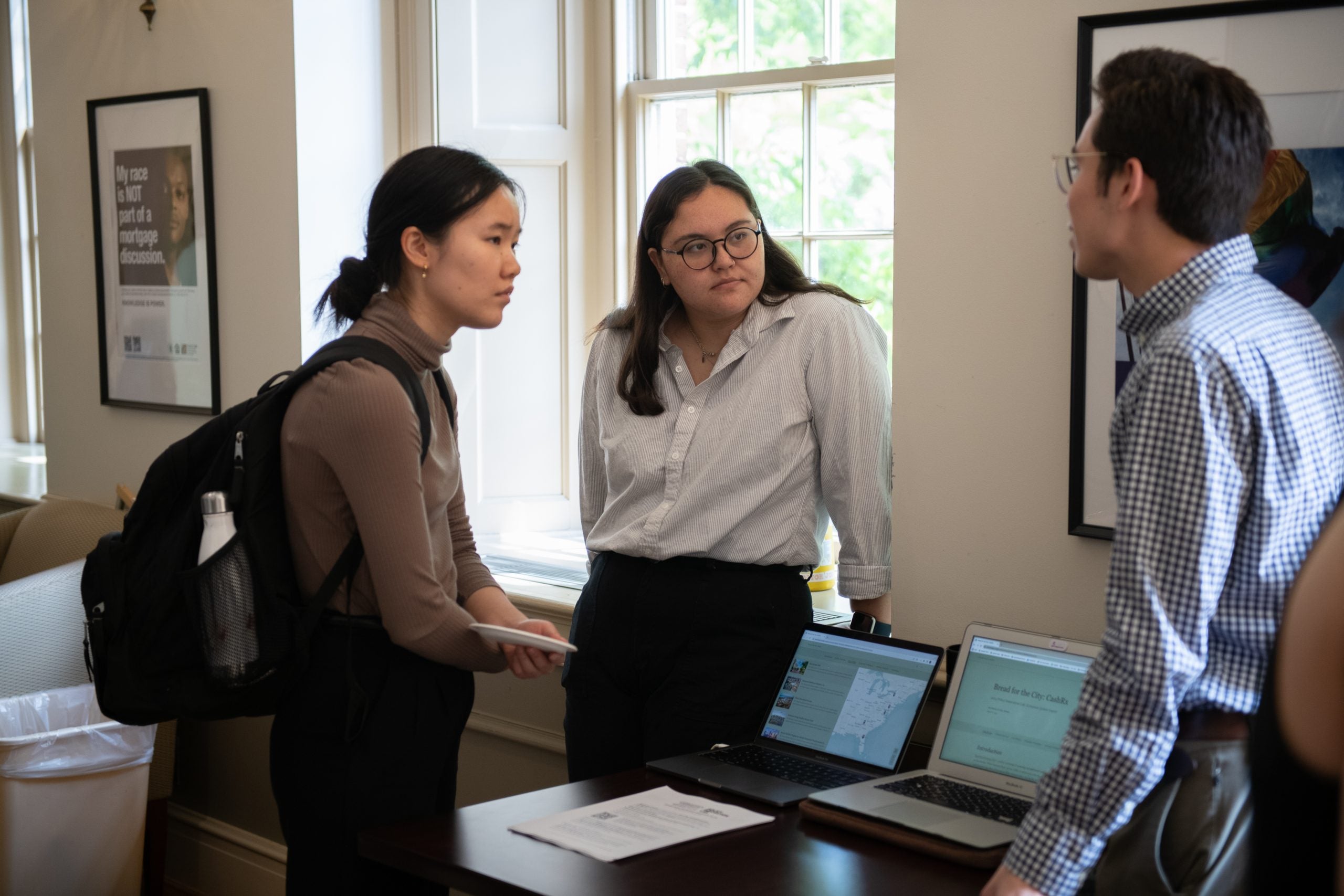DC social policy improvements presented by Georgetown students
Students from the Policy Innovation Lab conducted studies on local issues, including public safety, economic opportunities and allocation of public and private resources across the city.
Students from the Policy Innovation Lab at Georgetown University’s McCourt School of Public Policy presented ideas to improve some of the District of Columbia’s signature social policies at the program’s annual showcase today. The Lab partners with an array of DC stakeholders from elected officials to nonprofits to corporate entities to local activists.
The Georgetown event featured projects addressing issues ranging from K-12 education and workforce development to equity in traffic enforcement and methods to increase citizen engagement with hyperlocal elected officials.

Members of the Policy Innovation Lab (Visual Access Photography)
“Our students and community partners worked together to design and propose solutions to some of the most pressing policy issues faced by District residents in Wards 7 and 8 where economic investment is low and prevalence of gun violence rates is high,” said Jasmine Tyler, executive director of the Policy Innovation Lab and associate teaching professor of the practice at the McCourt School of Public Policy. “We are grateful to our partners for the opportunity to learn, and are privileged to contribute to equitable policy-making in DC.”
One particularly timely project considered the gap left by as-yet unfulfilled statutory obligation in the DC Youth Rehabilitation Act, which requires the mayor to provide treatment and services, including education and workforce training, to adults who have come into contact with the criminal legal system. The law was amended in 2018 but implementation has not taken place, so these McCourt School students created a blueprint to establish a program that aids emerging adults, ages 18-24, centered on workforce training and wrap-around services and educational opportunities. “Working on this project created opportunities for our team to meet the people and organizations in DC that are committed to finding creative policy solutions to reduce violence and mass incarceration,” said McCourt Student Association President and team lead Brianna LaFontan t.

McCourt School students presenting their research at the 2023 Policy Innovation Lab Showcase (Visual Access Photography)
Other student projects focused on various aspects of social policy governance and implementation in DC, including:
- The impact of farmers markets on food access in DC and their role in providing healthy food and integrating into communities with low food access.
- The link between violence and lack of economic investment in Ward 8, specifically looking at the disparities between Black-owned and white-owned businesses, predatory lending practices and the psychological factors that contribute to economic disadvantages and increased rates of violence in DC.
- Best practices for guaranteed income programs , including distribution, funding and changes in individual support levels, with a focus on one program run by local nonprofit Bread for the City.
- The impacts of traffic fines in the District including on residents in Wards 7 and 8, who are more car-dependent and susceptible to traffic fine accumulation because of a lack of public transportation options.
- Opportunity and experience gaps within K-12 education in DC, looking at schools in Wards 3, 4, 7 and 8 to find if a school’s location or a student’s demographics affect student experiences and whether enrichment activities like field trips and extracurricular activities vary by school.
- Addressing inequity in community engagement in Washington related to structures and practices of Advisory Neighborhood Commissions.
- Policy changes to discourage displacement trends observed in Wards 7 and 8, including mechanisms to hold landlords accountable to their tenants and for maintaining their properties.
- Improvements to local workforce development programs to reduce racial income gaps and generate economic growth among marginalized residents.
Visual presentations and related materials from each group are available online .
The Policy Innovation Lab provides McCourt School students with practical experience grounded in equitable policymaking in Wards 7 and 8, Washington, DC’s most underserved wards. Lab members, composed of select McCourt graduate students who have applied and participate in a multi-year voluntary program, acquire the skills to understand and partner with community actors and to engage in policy research, qualitative data collection and analysis, storytelling, implementation evaluation, power-sharing and advocacy that advances the Lab’s vision and mission.
